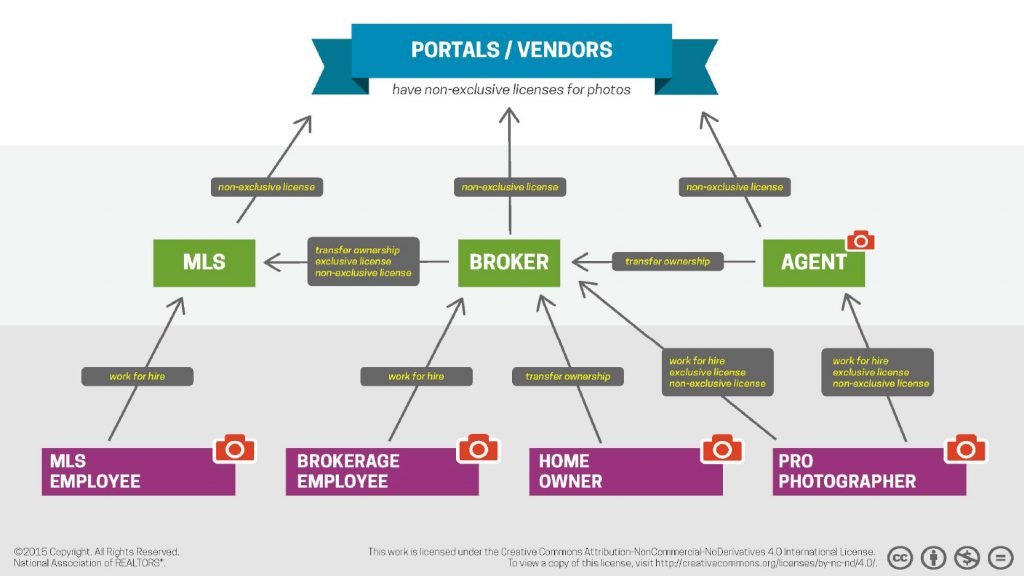Mitigating risk isn't the sexiest part of owning a real estate company, but it may indeed be the most critical. One well-supported lawsuit and there goes everything you worked so hard to build. Even less-than-viable litigation will waste time and resources that could be so much better spent elsewhere.

National Association of REALTORS® General Counsel Katie Johnson
That's why we invited National Association of REALTORS® General Counsel and Senior Vice President Katie Johnson to speak at our recent Real Estate CEO Exchange at the Harvard Club of New York City. During her presentation at the CEO Exchange, "The Top 3 Risks to Your Brokerage and How to Avoid Them," Johnson explained that the greatest risks fall under three umbrellas: evergreen; employment; and emerging.
1. Evergreen Risks
Within the evergreen bucket falls the No. 1 cause of action for litigation: property condition disclosure. The No. 2 cause? Agency.
"These issues continue to affect your business and your bottom line," Johnson explained. "In the majority of cases, the real estate professional prevails, but it costs money and time."
The best way to avoid such litigation is education and training, said Johnson. "Make sure your salespeople know what's required by state and make sure you understand your agency laws." She recommended the NAR Legal Pulse and The State Issues Tracker as excellent sources on the topics.
2. Employment Risks
The second largest area of risk for brokers involves issues surrounding independent contractor status—although, says Johnson, these cases are largely contained to those states where the laws aren't clear.
"Some states don't have the language and that's where we see the challenge," said Johnson. "So first and foremost, always have a written agreement." Then, she said, only require as mandatory those policies and procedures necessary for brokers to comply with supervisory duties according to state law.
Johnson offered several NAR resources on the independent contractor issue:
- NAR White Paper
- Key Provisions for Independent Contractors
- 10 Ways to Manage the IC Relationship
- IC FAQs
Also falling into the employment risk bucket is regulatory and legal issues surrounding agent teams. From advertising requirements to commission agreements, the team landscape is littered with potential problems. Check out NAR's Window to the Law Video: Legal Issues for Teams and stay tuned to RISMedia.com for a full recap of our CEO Exchange panel, "Agent Teams: How to Manage, Maximize and Mitigate Risk."
3. Emerging Risks
Some of the most nefarious perils to today's real estate brokerage involve emerging risks that are becoming more mainstream every day. Topping the list? Cyberfraud. Wire fraud in real estate transactions, for example, is reaching epic proportions. "Scams are getting way more sophisticated," said Johnson. "They'll spoof whoever they need to spoof in the transaction. You can argue it's not your fault, but this is a reputation issue as much as a legal risk and liability, so you have to be vigilant. Tell your clients about the risk from the outset and have them acknowledge in writing that it could happen."
When funds are wired, be vigilant, said Johnson. Have the homebuyer call the intended recipient immediately prior to sending the funds.
At all costs, said Johnson, never send wire instructions or any personal financial information by email. Instead, opt for a secure transaction management platform. And in the meantime, talk to your insurance provider to find out what cybercrimes are covered and which aren't—you don't want to get caught by surprise.
Another up-and-coming risk involves copyright infringement, as we've all gotten a taste of through the ongoing VHT-Zillow case. According to Johnson, there are two easy ways to avoid a copyright nightmare: own the photos; or get an exclusive license to use the photos.
Johnson illustrates the complexities of the copyright issue in the chart below:

Here are some other good NAR resources on the topic:
Finally, Johnson advised keeping an eye on legal issues surrounding ADA-accessible websites.
"The ADA (Americans with Disabilities Act) states that places of public accommodation must be accessible to people with disabilities," she explained. "There's a great debate right now over whether this covers the internet, so attorneys are taking advantage of it."
While the debate continues, Johnson recommended covering yourself legally by publishing an accessibility statement on your website to avoid "becoming low-hanging fruit for these attorneys." The statement should reflect the fact that you are in the process of revamping your site to accommodate those with disabilities. For an example, see NAR's accessibility statement here.
Find more great insights from RISMedia's 2017 Real Estate CEO Exchange here:
- The State of Real Estate: 'The Good, the Bad and the Ugly'
- Brokers Get Real About Standards, Succession Planning and Zillow
- Ushering in a Fresh Perspective: John Peyton and Nick Bailey Ready to 'Blow the Dust off; Iconic Brand
- Photo Recap: RISMedia’s 2017 Real Estate CEO Exchange
- Innovation, Not Irrelevancy: 3 Strategies to Sustain
- Big Data, Big Opportunities: How Predictive Analytics Is Changing the Business of Real Estate
- Avoid 'Chickeducks': Team Leaders Talk Lessons Learned
- Tackling Disruption From the Inside Out
- Know Your Model, Work It Well







